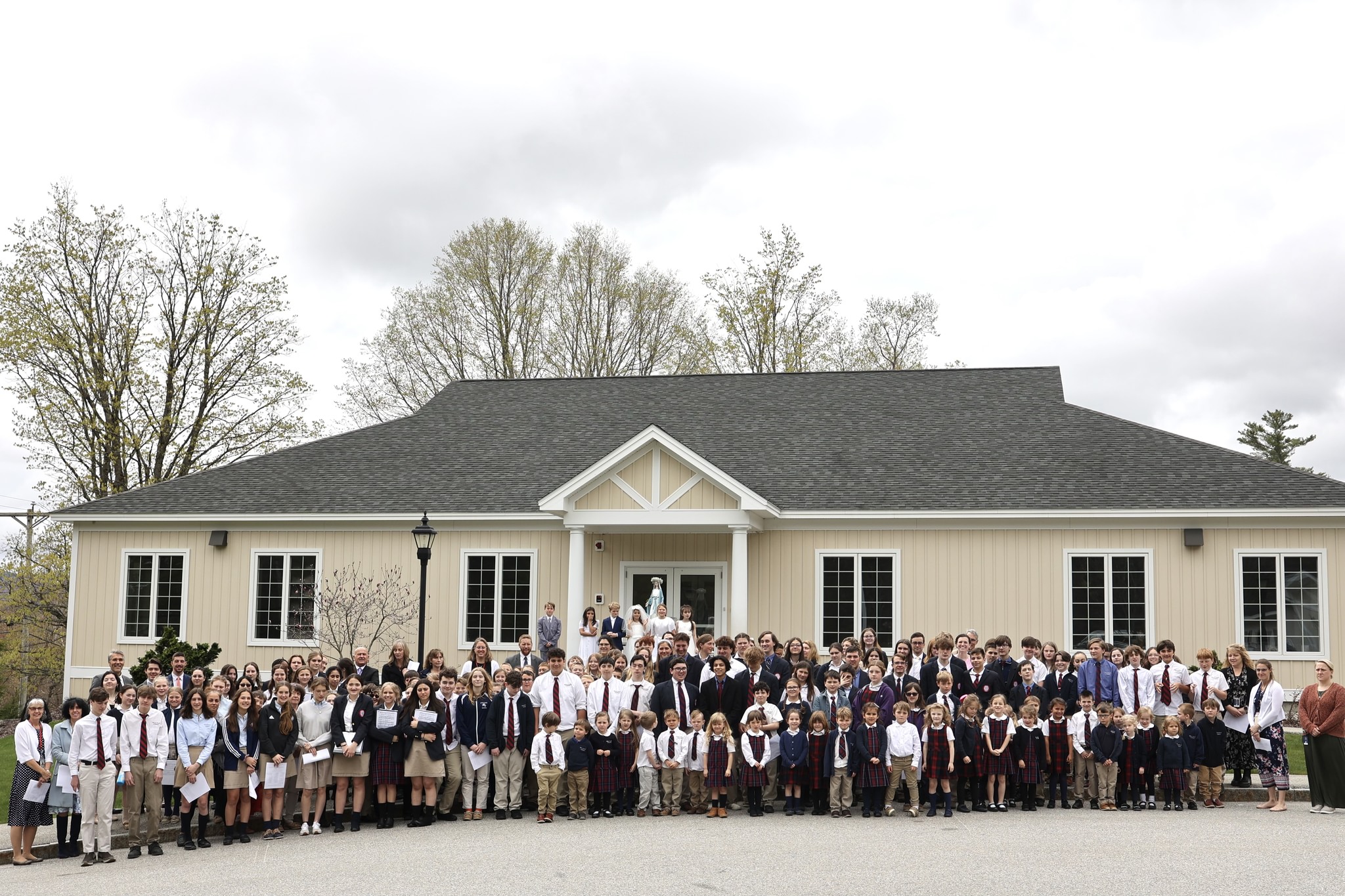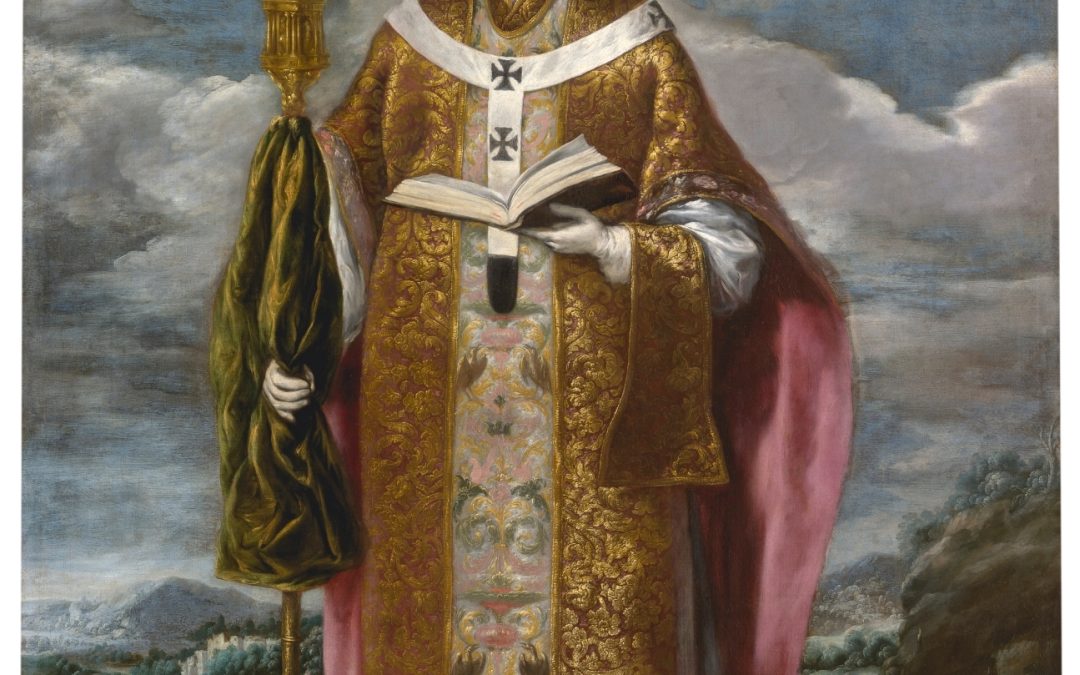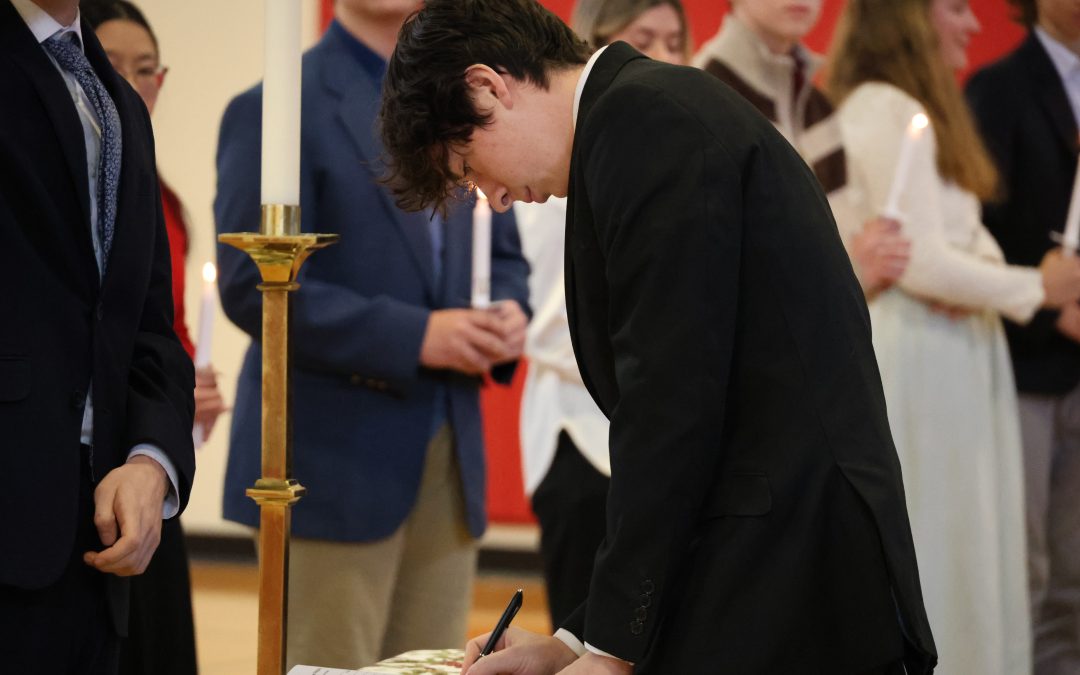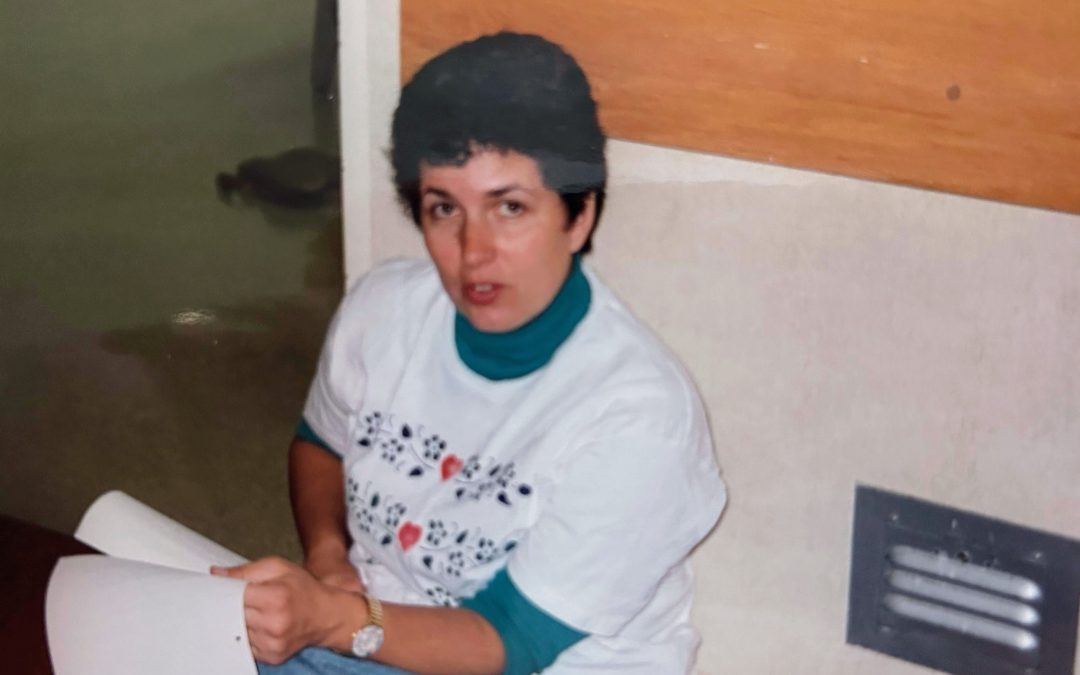
“Peace I leave with you;
my peace I give to you.
Not as the world gives do I give it to you.
Do not let your hearts be troubled or afraid.” – John 14:27
May is a bittersweet month. There is a certain intellectual and emotional exhaustion that naturally develops at the end of an academic year. This is all very normal and ordinary because of the hard work that should be commended. For students and teachers, the appetites of our souls are formed in these waning moments. Each day becomes a little harder to complete as we approach the end. I am sure parents feel it too! But we must remember that this is how virtue develops, when we have to refocus our attention on the good so that our will can choose it with conviction and joy!
Also bittersweet is the looming reality of an end of sorts. What will end? Well, the relationships that we have now will end as we know them to be, but they will transform into other relationships. We are sad to see these relationships end, but we look forward to the future relationships. Teachers will see their students travel to other teachers. Seniors will leave this formative stage behind them so they can seek out their God-given vocation. Each day becomes a vivid reminder of the transitory nature of human development.
The seniors are now presenting their theses defenses. The end of this part of our growth in holiness together is imminent, and it is fitting to reflect. What is reflection? In US History III, I have been asking our juniors to write more reflective essays—in part to prepare them for the senior thesis—and we always end up discussing ideas that are fundamentally important to our existence. We should never be afraid to ask these questions in any season of life, because the answers anchor our shared understanding of what it means to be human. And without a shared understanding, we cannot have a shared existence. Without a shared existence, we are autonomously atomized agents of whatever we self-declare ourselves to be, and we must be accepted as our own authors. This notion is antithetical to God’s self-revelation in the Incarnation. God descended into our existence to reveal man to himself. And in the words of John Paul the Great, this is what God revealed:
“Man cannot live without love. He remains a being that is incomprehensible for himself, his life is senseless, if love is not revealed to him, if he does not encounter love, if he does not experience it and make it his own, if he does not participate intimately in it. This, as has already been said, is why Christ the Redeemer “fully reveals man to himself”. If we may use the expression, this is the human dimension of the mystery of the Redemption. In this dimension man finds again the greatness, dignity and value that belong to his humanity.”
Our seniors are asking and answering these questions. The juniors are ready to follow suit. This is why our mission is so distinctive, and intentionally so! This is what makes it Catholic. And to be Catholic simply means to be human in accordance with God’s plan for human flourishing and fulfillment. This is not a plan that we create for ourselves, but that is no cause for sadness either! Living each day in total openness to God’s will is perhaps the most adventurous and liberating way to live!
This focus on the divine will is what motivates us the most in our mission. And once again, Mount Royal Academy is nationally recognized as one of the first K-12 schools to be included in the Newman Guide for faithful Catholic education. It is an honor that we do not take lightly! When I reflect on the history of our school, I am nothing but humbled and grateful for all the sacrifices made to bring us to this moment.
Just this morning, as I was doing my daily routine of praying the lectionary and reading the newspaper, I came across an article mentioning Cardinal Newman’s thoughts on the laity and Catholic education. The author develops the mission of our school—the first lay-founded school in the Diocese of Manchester to be recognized as Catholic—within the framework of the Church and society, noting the dangers of a Church without Catholic schools:
St. John Henry Cardinal Newman was once asked by his Bishop what he thought might be the place of the laity in the Church. He retorted: “The Church would look foolish without them.” An uncharacteristically laconic response for Newman. Which leads to the next question: If the Church would look foolish without the laity, what kind of laity would redound to her edification and effectiveness? Newman tells us clearly:
“I want a laity, not arrogant, not rash in speech, not disputatious, but men who know their religion, who enter into it, who know just where they stand, who know what they hold, and what they do not, who know their creed so well, that they can give an account of it, who know so much of history that they can defend it. I want an intelligent, well-instructed laity.” And what will such a “well-instructed laity” accomplish? It will be: “your gaining that proper confidence in self which is so necessary for you. You will then not even have the temptation to rely on others, to court political parties or particular men; they will rather have to court you. You will no longer be dispirited or irritated. . . , at finding difficulties in your way, in being called names, in not being believed, in being treated with injustice. You will fall back upon yourselves; you will be calm, you will be patient. Ignorance is the root of all littleness.”
Ordinary holiness informed by the light of truth, attractive by its very nature. Catholic education exists for this!
I hope to see you all this Friday at our Mission Renewed: Auction and Celebration event! This mission is worth every sacrifice! – Mr. Derek Tremblay, Headmaster



